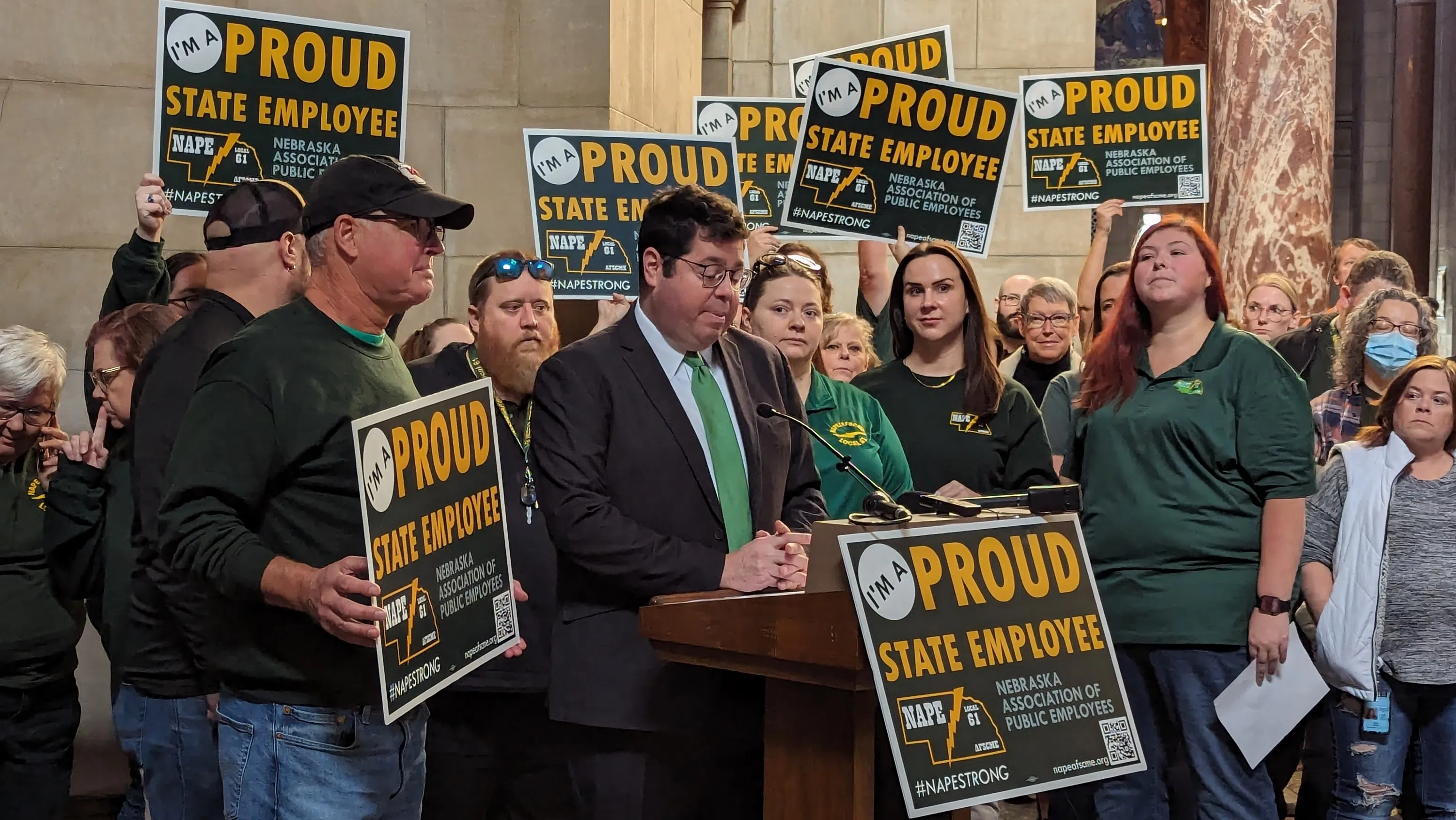A district court has ruled that the State of Nebraska will not be held in contempt for several agencies initially ignoring a labor court order. However, trial dates are officially set to fully litigate the issue of whether state executives have the authority to disregard union negotiations when altering the terms and conditions of employment.
The Nebraska Association of Public Employees (NAPE/AFSCME Local 61), representing over 8,000 state employees, took legal action in December. They alleged to the Nebraska Commission of Industrial Relations (CIR) that the State of Nebraska violated the law by refusing to negotiate with employees over Executive Order (EO) 23-17. This order, issued by Governor Jim Pillen in November, aimed to effectively ended remote work assignments for state employees at the start of 2024.
NAPE’s Executive Director Justin Hubly explained to KLIN News at the time, “Our contract contains a clause that says the employer (the state) agrees not to implement changes unilaterally to the terms and conditions of work that fall outside the scope of the contract… and in fact, remote work is not covered in the contract. It is our opinion that our contract applies here, and it needs to be bargained with us.
In tandem with the suit, NAPE asked the CIR to order the State to halt implementation of the EO while the issue was litigated. This request was granted in late December 2023.
In early January 2024, multiple state agencies informed their respective employees that they had the authority to disregard the CIR’s injunction order and instructed remote workers to return to the office.
Subsequently, NAPE pursued further legal action, requesting the District Court of Lancaster County to enforce the CIR’s order and hold the State of Nebraska in contempt, as allowed by state law. The State claimed confusion regarding the CIR’s order to halt implementations while the issue was litigated and sought clarification. On January 10th, the CIR reiterated that the order was clear: state agencies were not to alter employees’ remote work assignments while the case was pending.
“By the time we got to the district court, the state had mostly fallen in line to follow the order,” Hubly explained to KLIN News. According to Hubly, the state testified to the District Court that they were genuinely confused and did not intend to violate the order.
On Monday, February 5th, the District Court of Lancaster County decided that the State of Nebraska would not be held in contempt and dismissed the union’s petition. The court said that the State did not reasonably understand the CIR’s order, and there was a lack of evidence proving that the State was in violation of the order at the time of the contempt hearing. Striking a balance, however, the court explained that the injunction order would be enforced, leaving remote-work assignments untouched for the time being.
“Only after the CIR denied the State’s motion to clarify, and asking the District Court for a continuance in the contempt proceedings, did all state agencies fully follow the CIR’s order,” said Hubly, “We’re pleased with the decision. Our goal is not to go to court and waste everybody’s time and money, but if orders are being violated, that’s the only mechanism in the statute to hold the state accountable, and we did that.”
While this might be perceived as a legal setback for NAPE, Hubly explained, “I don’t think any of our members care if the state’s held in contempt or not as long as they’re following the order, and that’s what they’re doing now.”
A trial is now scheduled before the CIR on February 26, 27, & 28 to reach a final decision on the matter, determining whether the State of Nebraska violated the law by refusing to negotiate with NAPE over the terms and conditions of remote work assignments.
With the proverbial day-in-court on the horizon, Hubly reiterated that the door is still open for the State to meet with NAPE and work things out, “We’re always willing to sit down and negotiate. That would be a much better path than going the litigation path. If we can work together in everybody’s best interest, that’s the best way to do business.”







